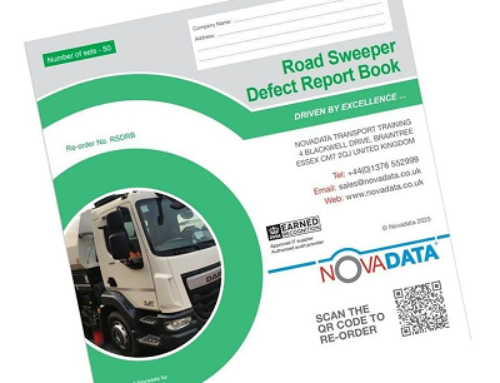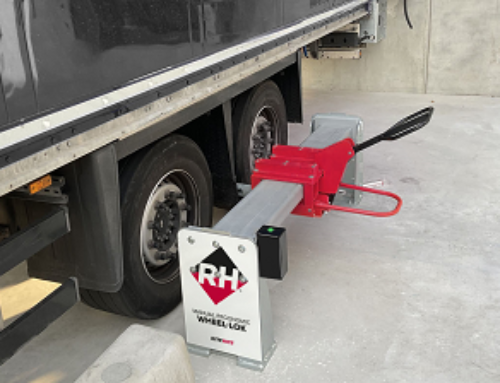Training in focus with Logistics UK
 Logistics UK has issued guidance for fleet operators and drivers on a range of key areas of transport-related training, and outlined details of some of the programmes it provides.
Logistics UK has issued guidance for fleet operators and drivers on a range of key areas of transport-related training, and outlined details of some of the programmes it provides.
“Whether you are an HGV driver, warehouse operative or transport manager, every role requires initial training and depending on the profession, ongoing training known as continued professional development (CPD) is required,” advised Ray Marshall, manager of compliance information, Member Advice Centre, Logistics UK.
“This is crucial to ensure that workers can do their job effectively while ensuring their safety, and the safety of those around them.”
Ray emphasised the importance of ensuring that drivers remain qualified by undertaking 35 hours of periodic Driver CPC training every five years.
“This can be taken at any time within the five-year period or spread throughout it,” he said.
It is important to note that there are exceptions to the Driver CPC Periodic Training, he adds, where if driving is not the main part of the individual’s job, or if the vehicle is exempt – such as wanting to carry passengers or goods for personal use and not commercially or only drive for certain tasks like taking the vehicle to test centre – the driver might not need the full Driver CPC.
“Training as a new HGV driver can take anywhere between eight to ten weeks to complete, with the actual driving element of the HGV lessons lasting approximately five days,” he continued.
“Costs on average can be as much as £2,000 from the initial application to the pass certificate; however, with the creation of government’s HGV Skills Bootcamps there is potential for these to be part funded.”
Ray continued: “Logistics operators carry a wide variety of goods across all transport modes, including items classed as dangerous or hazardous goods and therefore certain rules and regulations are implemented to ensure the safety of everyone involved.
“HGV drivers looking to become a dangerous goods (ADR) vehicle driver, can do so regardless of how long ago they acquired their HGV driving licence, but must undergo further training and pass exams to receive an ADR card. The ADR qualification lasts for five years and drivers who want to retain their ADR licence must take refresher training and exams before the current card expires.
“Refresher training can be done one year before the current card expires; and if successful, the qualification will be extended for another five years from the expiry date of your current card. It is important to note that if the refresher training is started more than one year before the expiry of the current card, then the new ADR card will be valid five years from the pass date of the refresher exam.
“Drivers must always keep their ADR card on themselves when in an ADR vehicle to comply with regulations.”
He added: “Logistics UK recognises the importance of training and offers a wide range of courses to support the logistics industry, from Transport Manager CPC and Driver CPC, to dangerous goods and aviation security courses, managing transport operations, passenger operations and technical training.
“There are a variety of online and face-to-face courses to provide operators with the knowledge and qualifications required. These include the organisation’s Dangerous Goods Awareness e-Workshop, IATA, IMDG, ADR and RID training courses.
“In addition, the business group runs an online version of the Transport Manager CPC course (e-TM CPC) to ensure transport managers continue to receive vital compliance without having to travel, as well as face-to-face Transport Manager CPC – Road Haulage sessions.”
A full list of courses can be viewed, and bookings made, via the website.















